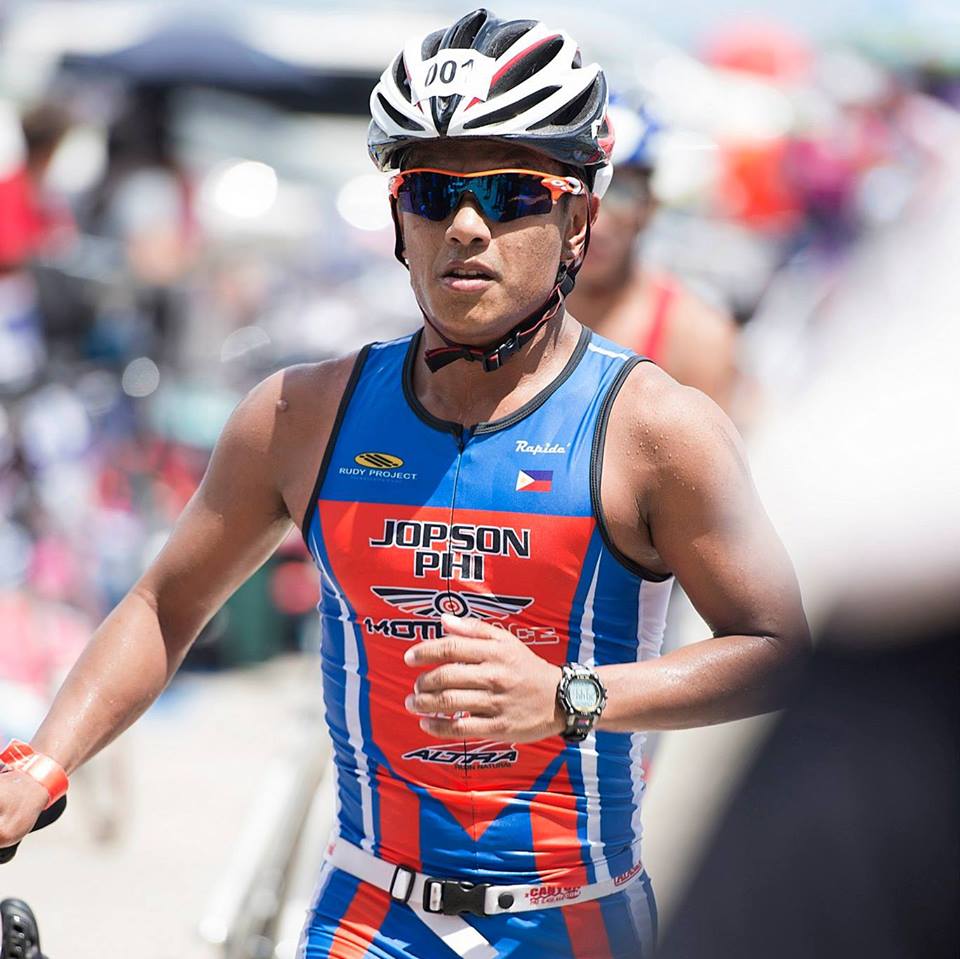Driven by passion, empowered by technology ‘the Ironman’ conquers the odds
LIKE A TRUE sportsman, Noy Jopson was born to race.
Having shown a strong inclination for sports at a young age, Jopson saw his teenage years competing in various matches both here and abroad. But more than just his interest in sports, it would be Jopson’s passion and discipline that played a key role in helping this highly acclaimed triathlete reap countless awards and titles over the years, including the prestigious title of being the First Ironman 70.3
Filipino Elite Champ.
And with the Ironman 70.3 Philippines slated to happen this weekend, the Inquirer asked Jopson how much he think the sports has evolved, from the mode and method of training, down to how the latest
technology and gadgets have helped athletes like him to better accomplish their goal.
“When I started, back in 1991, we were big into periodization, having distinct Base-Strength-Speed-Taper phases in our programs. There was typically only one or two triathlon races a year during that time and
this type of program was designed to allow you to really ‘peak’ for one key race a year. Now, I use macro and micro cycles for my athletes, throughout the year and even within a week program, we have elements of endurance, strength, speed and recovery,” Jopson related. “I use the Internet a lot to send the weekly programs of all my athletes. The Internet allows me to coach some of them from out of town or even out of the country. But I still think it’s important to talk to the athletes over the phone or in Skype at least once a week,” he further said.
Globe Telecom, which is again this year’s official telecommunications partner of Ironman 70.3 Philippines, has gone the extra mile to provide reliable Internet connections and even apps, that could help athletes to better track their progress during their practices. Globe has also allowed athletes through their various
social media accounts such as Facebook, Twitter and Instagram to inspire and encourage other people to get into sports.
“Strava is a nice app, as it helps athletes to keep track of their workouts and allows them to share it and compare their performances along a particular course over time. Practically everyone is training with a Garmin GPS watch as well. I think all these gadgets and apps are nice because these help athletes keep track of their programs and it can be motivating,” Jopson explained.
Indeed, much has changed since Jopson first started to race, and technology, for one, has helped him and the other athletes to train better to achieve their goals. As one who has made a legacy in this field, Jopson noted that even with the latest gadgets and the newest of technologies at hand, one’s success could not be achieved without a strong support team and an unwavering determination of an athlete to push himself to conquer the odds.
“To become a successful athlete, you have to eat well, sleep, work, pursue life goals, and exercise. Probably our only difference with the ‘non-athletes’ is that our exercise, which are more often referred to as workouts, has a purpose and is part of an over-all training program,” Jopson explained.
A highly disciplined and determined triathlete, Jopson trains about three hours a day during the week and about four to five hours during weekends. A four-time National Champion, Jopson is also a prestigious holder of the Kona Ironman Phil Record title, a concrete proof that hard work and discipline do pay off.
“I train for about 15 to 20 hours a week. Being a triathlete can be very challenging especially so if you have big performance or race goals. When I’m training for a key event like the Ironman 70.3, I train as much as four times per week per sport, so that’s about 12 workouts over six days. I ramp the total volume to about 20 to 25 hours, 12 weeks prior to a key event. Otherwise, when I’m not training for anything in particular or I’m just joining a race for fun, six hours a week, approximately two workouts per week per sport is sufficient,” Jopson shared.
A participant in a triathlon, considered to be one of the toughest sporting events, is expected to finish an impressive long-distance race comprised of three activities namely swimming, bicycling and running. It requires immense endurance, inner strength, will power, and a stern determination for a triathlete to finish every game. “I’ve been doing triathlons for 24 years and admittedly, one of the most difficult parts in this is the preparation for the event and the logistics (travel, transport and accommodations). The race is the fun part because it’s where you show off all the training you have done,” Jopson said.
“At the end of the day, it’s the athlete who has to do the race,” Jopson concluded.
